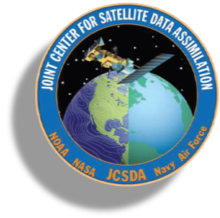The new interpolator hasn’t just made the code slightly more efficient - it has quadrupled the run speed for a 3DVar experiment with GSI static B.
From Space to Forecast: Harnessing TEMPO’s Hourly Observations with JEDI for Next-Gen Air Quality Monitoring and Prediction
Space Weather, New Observation Operators, and the DRAS Project Highlight a Remarkable Year for JCSDA
Bipartisan Support for Funding of JCSDA and JEDI as Critical to National Weather System
A bipartisan Dear Colleague Letter with 24 signatures has been sent to the Speaker, Minority Leader, and Appropriations Committee Chair and Ranking Member of the House of Representatives requesting funding for weather prediction innovation in any disaster supplemental or upcoming appropriations bills for science and technology, specifically highlighting the importance of JCSDA and JEDI to the next generation of forecast models.
Code Sprint Standardizes Variable Names Across JEDI
Last month the JCSDA held a code sprint to begin standardizing variable names across JEDI, updating the generic code to match naming standards also adopted by the Common Community Physics Package (CCPP). This ensures that the JEDI data assimilation remains model agnostic, eliminates unnecessary code duplication, and ensures consistency across all JEDI model interfaces.
Using JEDI for Snow Depth Variational DA
With recent advances, JEDI can now perform variational (2DVar) data assimilation for snow depth analysis. The flexibility of JEDI and the generic implementations of data assimilation algorithms (in OOPS) and background error covariances (in SABER, System Agnostic Background Error Representation) enabled a rapid development of this system for snow depth analysis.
JCSDA Closes out DRAS Project with Enormous Success
In 2019 JCSDA was awarded a Disaster Relief Appropriations Supplemental (DRAS) grant from NOAA to accelerate JEDI development and integration, with an emphasis on connecting that development to operational use and systems. The main goals were to accelerate towards use in operational NWS production suites, improving R2O and O2R, and advancing tools for use of observations, all of which were accomplished.








